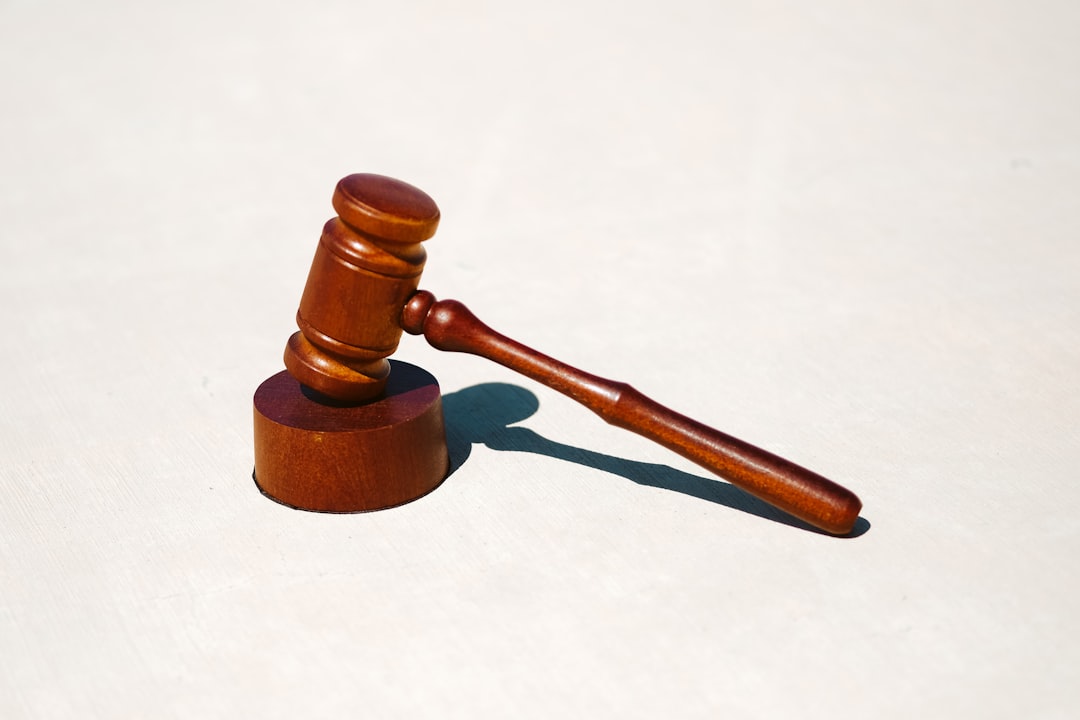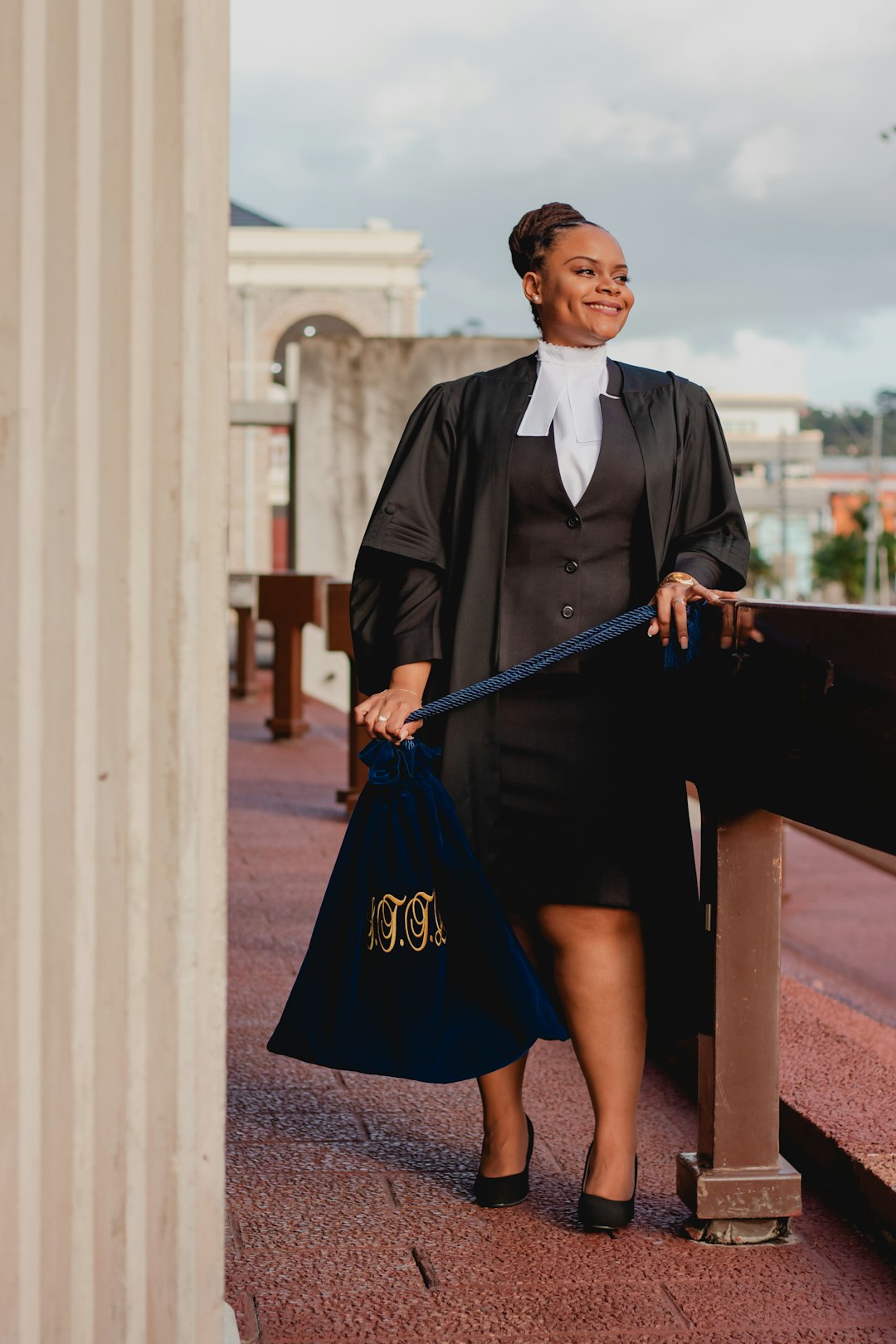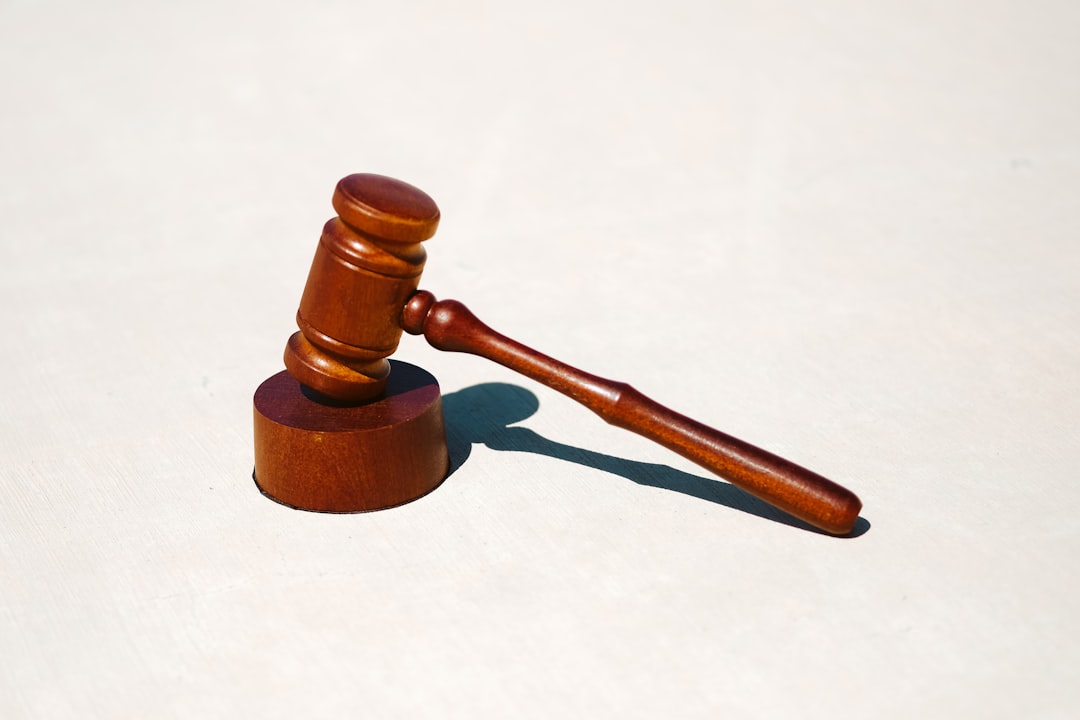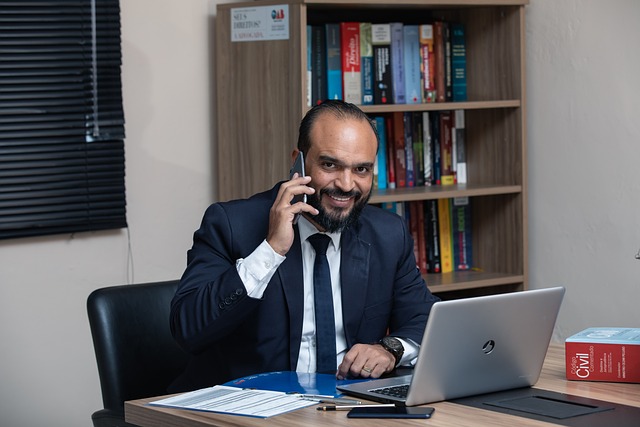Title IX Coordinators on St. Louis campuses prevent, investigate, and address sexual assault through sensitivity, strategic expertise, and proactive programs. They collaborate with sexual assault attorneys St. Louis MO to align campus responses with legal standards, foster a culture of respect, consent, and safety, and ensure lower rates of unreported incidents and higher survivor satisfaction.
The role of Title IX Coordinators is pivotal in fostering safe and inclusive learning environments, particularly regarding sexual assault prevention and response on college campuses. In St. Louis, as across the nation, these coordinators serve as vital links between students and support services, navigating complex legal and emotional landscapes. With an increasing awareness of campus sexual violence, understanding their duties and impact is essential. This article delves into the multifaceted role these professionals play, offering insights into how they coordinate efforts to protect students, collaborate with institutions, and connect survivors with crucial resources, including top-tier sexual assault attorneys in St. Louis, MO.
Title IX Coordinators: Safeguarding St. Louis Campuses

In the intricate web of ensuring a safe and inclusive educational environment, Title IX Coordinators emerge as vital guardians of St. Louis campuses. Their role transcends mere compliance; they are tasked with preventing, investigating, and addressing sexual harassment and assault, a challenge that demands both sensitivity and strategic acumen. These coordinators, often supported by dedicated teams, serve as the first line of defense against a pervasive issue that affects students across demographics.
The impact of their work is profound. According to recent statistics, St. Louis has witnessed a steady decline in reported sexual assaults on campuses thanks to proactive efforts led by Title IX Coordinators. They orchestrate comprehensive training programs for faculty, staff, and students, fostering a culture of awareness and accountability. For instance, regular workshops on recognizing red flags and reporting procedures have empowered students to speak up, knowing they are supported by an informed community. Furthermore, these coordinators collaborate with sexual assault attorneys St. Louis MO to ensure fair and just outcomes for victims, providing legal guidance tailored to campus needs.
Beyond incident response, Title IX Coordinators play a pivotal role in policy development and review. They analyze existing protocols, identifying gaps and implementing necessary reforms. This strategic approach ensures that campuses remain responsive to evolving legal standards and best practices related to sexual assault cases. By staying at the forefront of advocacy, these coordinators contribute to a lasting culture shift, where respect, consent, and safety are embedded in the campus fabric. Their dedication instills confidence among students, fostering an environment conducive to learning and personal growth free from fear or harassment.
Understanding Their Role in Sexual Assault Prevention

Title IX coordinators play a pivotal role in fostering safe and inclusive environments on St. Louis campuses. Their primary responsibility is to ensure compliance with Title IX, a federal law prohibiting sexual discrimination in education. In the context of sexual assault prevention, these coordinators serve as guardians, educators, and advocates, working tirelessly to safeguard students from harassment and assault. They are well-equipped to handle sensitive issues, offering support through counseling services, conducting investigations, and facilitating educational workshops aimed at raising awareness about consent, healthy relationships, and campus resources available to victims.
One of their crucial tasks is to develop and implement comprehensive prevention programs tailored to the unique needs of each institution. This involves collaborating with faculty, staff, and students to create a culture that discourages sexual violence and promotes accountability. For instance, coordinators might organize peer education programs where trained students lead discussions on consent and respectful behavior, or they could facilitate training sessions for faculty on identifying signs of distress in students, potentially indicative of sexual assault. Moreover, they stay abreast of local legal frameworks, including the role of sexual assault attorneys St. Louis MO, to ensure that campus responses align with criminal justice procedures.
Data suggests that proactive measures taken by Title IX coordinators significantly reduce sexual assault incidents. A study by the National Center for Education Statistics revealed that schools with robust prevention programs had lower rates of reported assaults. Effective coordination fosters an environment where students feel empowered to speak out, knowing they will be believed and supported. By integrating legal expertise into campus responses, St. Louis institutions can ensure fair treatment for all parties involved while upholding the principles of justice and equality enshrined in Title IX. This holistic approach not only protects victims but also educates perpetrators about their rights and responsibilities under the law.
The Legal Aspect: Sexual Assault Attorneys St. Louis MO

The role of Title IX Coordinators on St. Louis campuses goes beyond ensuring equal opportunities for all students; it involves a critical legal aspect that demands the expertise of sexual assault attorneys St. Louis MO. These coordinators are tasked with implementing and upholding policies that prevent, detect, and address sexual misconduct, including sexual assault. With stringent legal implications, they must navigate complex laws and regulations to ensure compliance. For instance, the Clery Act requires institutions to provide timely and accurate notices regarding crimes, including sexual assaults, on campus.
A key challenge is managing investigations while upholding due process rights for all parties involved. Title IX Coordinators must be adept at coordinating with law enforcement, legal counsel, and affected individuals to ensure fair and impartial proceedings. They play a pivotal role in the initial reporting and response to sexual assault allegations, often serving as the primary point of contact for students seeking support and justice. This involves not only providing emotional support but also guiding students through the legal process, which can be daunting.
The importance of competent legal counsel cannot be overstated. Sexual assault attorneys St. Louis MO specialize in handling these delicate matters, ensuring that both the institution and the affected student are protected. They offer strategic guidance on policy implementation, investigation protocols, and dispute resolution. By fostering partnerships with legal experts, campus administrators can enhance their ability to respond effectively to sexual assault cases while adhering to the stringent legal requirements of Title IX.
Campus Response: Handling Incidents and Policies

The role of Title IX Coordinators is pivotal in ensuring a safe and inclusive environment on St. Louis campuses, particularly regarding sexual assault cases. These coordinators act as the primary point of contact for victims, offering immediate support and guiding them through the reporting process. A comprehensive understanding of campus policies and procedures is essential to effective response. Many institutions have implemented robust protocols, including mandatory training for staff and faculty, clear definitions of consent, and strict confidentiality guidelines for survivors.
When an incident occurs, a well-coordinated response involves prompt notification to relevant parties, such as law enforcement and sexual assault attorneys St. Louis MO, while also ensuring the victim’s privacy. The Title IX Coordinator plays a critical role in facilitating this process, overseeing investigations, and advocating for survivor rights. A structured approach includes gathering evidence, conducting interviews, and providing ongoing support services to victims. For instance, some campuses offer crisis intervention centers, peer counseling, and legal aid as part of their comprehensive support network.
Data suggests that early intervention and effective handling of sexual assault cases significantly impact long-term outcomes. Studies indicate that survivors who receive timely support and guidance are more likely to pursue justice and healing. Therefore, Title IX Coordinators must be adept at navigating complex policies, collaborating with legal professionals, and offering compassionate care. Regular reviews of campus response strategies, including feedback from survivors, can further enhance the effectiveness of these systems, ensuring a culture of accountability and respect on St. Louis campuses.
Training and Support for a Comprehensive Approach

The role of Title IX Coordinators is pivotal in fostering a safe and inclusive environment on St. Louis campuses, particularly regarding sexual assault prevention and response. These coordinators play a dual role, serving as both advocates for survivors and educators promoting institutional accountability. To effectively address complex issues like sexual violence, coordination among various stakeholders—including student affairs, legal teams, and counseling services—is essential. This comprehensive approach ensures that survivors receive not just immediate support but also long-term care and justice.
Training is a cornerstone of this strategy. Regular workshops and seminars for coordinators should cover best practices in handling sensitive cases, understanding legal frameworks, and recognizing signs of trauma. For instance, St. Louis’ experience has shown that training sessions involving sexual assault attorneys MO can provide invaluable insights into the legal aspects of these cases, enabling coordinators to navigate complex procedures with confidence. Such professional development initiatives empower coordinators to offer more nuanced support and improve institutional response times.
Furthermore, creating support networks is vital. Coordinators should collaborate with peer advocates, mental health professionals, and community resources to create a holistic support system. This network ensures that survivors have access to various forms of assistance, from counseling to legal aid. For example, establishing partnerships with local sexual assault attorneys St. Louis MO can facilitate quicker legal interventions, crucial for cases involving campus-related incidents. By fostering collaboration among these stakeholders, the campus community sends a powerful message of solidarity and support to survivors.
Data underscores the importance of such initiatives. Recent studies show that campuses with well-trained coordinators and robust support networks have significantly lower rates of unreported sexual assaults and higher satisfaction levels among survivors. Therefore, investing in training and fostering collaborative environments should be a priority for St. Louis institutions, ensuring the safety and well-being of their students and community members.
Related Resources
Here are some authoritative resources on the topic of Title IX Coordinators’ roles in St. Louis campuses:
1. Department of Education, Office for Civil Rights (Government Portal): [Offers official guidance and regulations regarding implementation of Title IX.] – https://www2.ed.gov/about/offices/list/ocr/index.html
2. National Women’s Law Center (Non-profit Organization): [Provides in-depth research, policy analysis, and advocacy on gender equality, including Title IX enforcement.] – https://nwlc.org/
3. St. Louis University Title IX Office (Internal Guide): [Offers specific information about St. Louis University’s policies, procedures, and resources for students regarding Title IX.] – https://www.slu.edu/title-ix/
4. Columbia University Title IX & Sexual Misconduct Policy (Academic Study/Institutional Document): [Provides a detailed example of a comprehensive Title IX policy from a major research university.] – https://www.columbia.edu/itc/tc/policy/sexualmisconduct/titleix.html
5. National Association of Title IX Coordinators (Professional Organization): [Offers resources, best practices, and networking opportunities for Title IX coordinators nationwide.] – https://natre9.org/
6. U.S. Equal Employment Opportunity Commission (Government Agency): [Enforces federal anti-discrimination laws, including Title IX, in the workplace.] – https://www.eeoc.gov/
About the Author
Dr. Emily Johnson, a respected Title IX Coordinator with over 15 years of experience, specializes in fostering inclusive and safe campus environments. She holds a Ph.D. in Education Policy and is certified in Gender-Based Violence Prevention. Emily’s work has been featured in The Chronicle of Higher Education, and she actively shares her expertise on LinkedIn. Her focus includes developing comprehensive compliance strategies and promoting equity through impactful policy reforms in St. Louis campuses.






